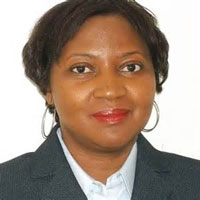(The following is extract of an interview with Ms Abiola Inniss in Georgetown, Guyana, 2014. Inniss is a leading analyst and author on Intellectual Property and a special consultant to WIPO UN on Caribbean Copyright issues)
* Petamber Persaud (PP): How has copyright become a bad word?
* Abiola Inniss (AI): There are many reasons why copyright could have become a bad word in our situation. But I think it is due to a fear of compliance. Looking at it as I do from an international legal perspective, there are many, many issues that involve governments, international laws, and international relations particularly in this time when we deal with international intellectual property law and policy…so those are issues that governments are sometimes unable to face – they don’t have the wherewithal, they don’t have the human resources or they just don’t know how to approach it

Copyright is an important aspect in the world today because so much of what we do has gone into cyber space. So much of the world economy focuses on the internet and all of the internet relations and issues around it – there is no way you can escape it. If you want to do international trade you do it via the internet. If you want to get into international consumers laws it is via the internet and because of that the world economy is focused heavily on it. The intangibles are now out there in cyber space; you cannot avoid it.
* PP: There is no escape. So one, are we fooling ourselves, two, are there people competent to let us know what’s happening and they are not sharing that knowledge and three, are we totally turning our back on the issue.
* AI: There are people who are competent and two, yes, those people in public policy, who are your policy makers are turning their backs on the issue because they don’t know how to approach it. But there is no way you can avoid it now. You have the incident in 2012 with the British booksellers and the Government of Guyana, and you saw the outcome. Things are changing, you are expected to change with them and you will have to learn to adjust pretty quickly in terms of intellectual property. You should not be afraid of intellectual property. In my role as WIPO Consultant on Caribbean Copyright, I had gone to countries and sat down with Government officials to discuss how they would approach intellectual property rights and how they would approach copyright. And one of the things I’ve looked at is what is happening on the ground. So you have public interest and you can now look at how you can create public policy. And from public policy, you will decide how you will deal with regulations that suit your country’s situation as well as comply with international regimen such as WIPO…
* PP: Can this happen that you could prepare your own sets of rules and regulations to suit the world organisations?
* AI: In the sense that you have some amount of leverage. There are certain minimum standards that you will have to comply with. But what you do not want to do is to put the regulations in place without knowing how it would affect your country. And you don’t want to ignore it complete and pretend you are a settlement on the moon because it is not going to work today. So you look at what will affect the circumstances and how you deal with it, again because the world economy is structured around intellectual property so much these days, your economic policies will have to take that into account and what many countries have been doing is dealing with innovations among other things – the South East Asian countries have invested heavily in research and development for innovation. So it is not a question of sitting by and hoping it goes away or begging for extra time…
* PP: There is a current issue on which we are begging for time.
* AI: Bgging for time wouldn’t work; there is no more time. You either get with the programme or get off…
* PP: Is it possible to get off the programme?
* AI: No, it is not possible to get off the programme. So you must get with it or you’d be swept away.
* PP: At this time, let’s look at the direct impact of copyright on three areas. Tell us, show us how important copyright is to one – the lay person, two – the creator/artist and three – to the country, the development of the country.
* AI: First of all, you need to have a cumulative policy which allows you to understand what copyright is all about and why it is important to you. If your writers, do not write, then you don’t enjoy books; if your songwriters do not produce, then you don’t have entertainment; if your actors and playwrights don’t come up with ideas, then we lose parts of our culture – you have to remember always our culture is documented by our writers, some of our consciousness is created by people who think about things like that and develop cultural awareness. What do we do for them? Take their works, give them nothing and then let them go. It takes a lot to be a writer.
* PP: So what I’m getting here is that if there is nothing in it for me as a writer, singer, actor, then I would not produce.
* AI: You probable will produce. But it is better if we respect those persons, and allow them to make a livelihood so that our culture and our national consciousness can flourish….
WHAT’S HAPPENING:
* The Guyana Annual Magazine 2014-2015 issue in now available at Guyenterprise Ltd., Lance Gibbs and Irving Streets, Tel # 226-9874
(Persons wishing to respond to this author can telephone (592) 226-0065 or email: oraltradition2002@yahoo.com)
by Petamber Persaud





.jpg)








